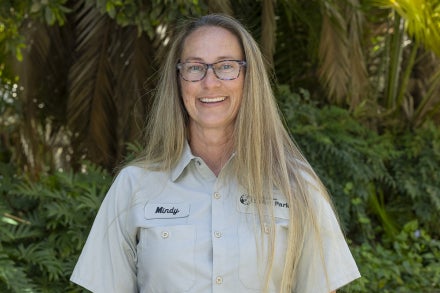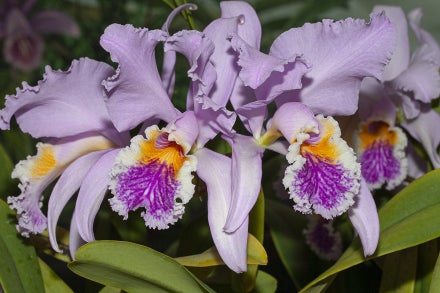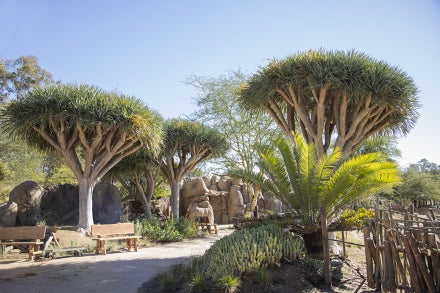
Ask any experienced gardener, and they’ll tell you—good things take time. Whether planting delicate seeds or pruning overgrown flowerbeds sprawling with weeds, there’s no rushing the process if you want ideal results. Little by little, success grows from the soil of diligent, patient, trusting work. And it takes time.
Wildlife care specialists know this, too. At the San Diego Zoo Safari Park, wildlife care specialists spend their days caring for, developing relationships with, and learning about extraordinary wildlife. Day by day, over the course of many years or even decades, they show up daily with compassion to offer the very best in physical, mental, and emotional care. Over time, with each interaction, this builds deep trust with the individuals they care for—an essential element of emotional welfare. From understanding social behavior to participation in medical assessments, building trust little by little is foundational to caring for wildlife.
Perhaps no one knows this better than the gorilla team at the Safari Park. To care for critically endangered Western lowland gorillas at the Park, wildlife care specialists consider the needs of each individual gorilla as well as the troop as a whole, relying on the trust they’ve built over time to understand and care for their unique needs. In the summer of 2022, the team’s assessment of changing dynamics within the troop led to the beginning of a new journey for gorillas Frank and Monroe—male gorillas on the cusp of adulthood—and a new level of trust between the team and the gorillas.
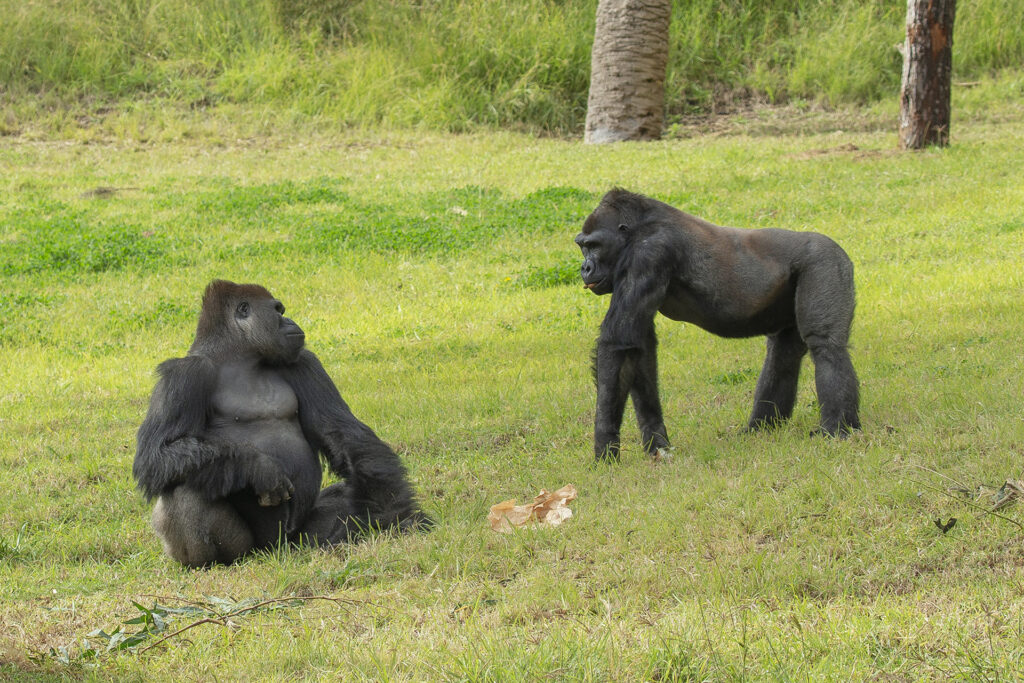
Growing up Gorilla
Adolescent male gorillas are considered “subadults” or “blackbacks” around 10 to 12 years old. Near this time (or sometimes a bit before), subadult males naturally move on from their family group to venture out on their own or join a bachelor troop with other adult males. Around age 15, male gorillas are considered adult “silverbacks,” ready to lead their own troop.
Frank was about 12 years old when he began showing developmental maturity. Monroe, who is two and a half years younger, soon followed. Not only were Frank and Monroe nearing the same stage in development, they are also best friends. Wildlife care specialists on the gorilla team knew it would be best for both of them, and the rest of the gorillas, for Frank and Monroe to start their own bachelor troop. Much like high school graduates ready to move out of mom and dad’s house, it was time for Frank and Monroe to begin a new chapter in a space of their own.
A lush, green three-acre habitat on a stunning hillside overlooking the Safari Park’s savanna awaited the pair. The next step, however, was making the trek from one habitat to the next. It would be a change for Frank and Monroe, and wildlife care specialists wanted to make sure the pair understood and could confidently make their own choices with each step. To do this, they would need to offer Frank and Monroe many opportunities to practice walking into their personal transport carriers, being lifted in their carrier onto a truck, and riding on the back of the truck to their new habitat. This was something that they had never done before, but the gorilla team felt strongly that familiarizing them with each step of the process—no matter how long it took—would be worth their time.
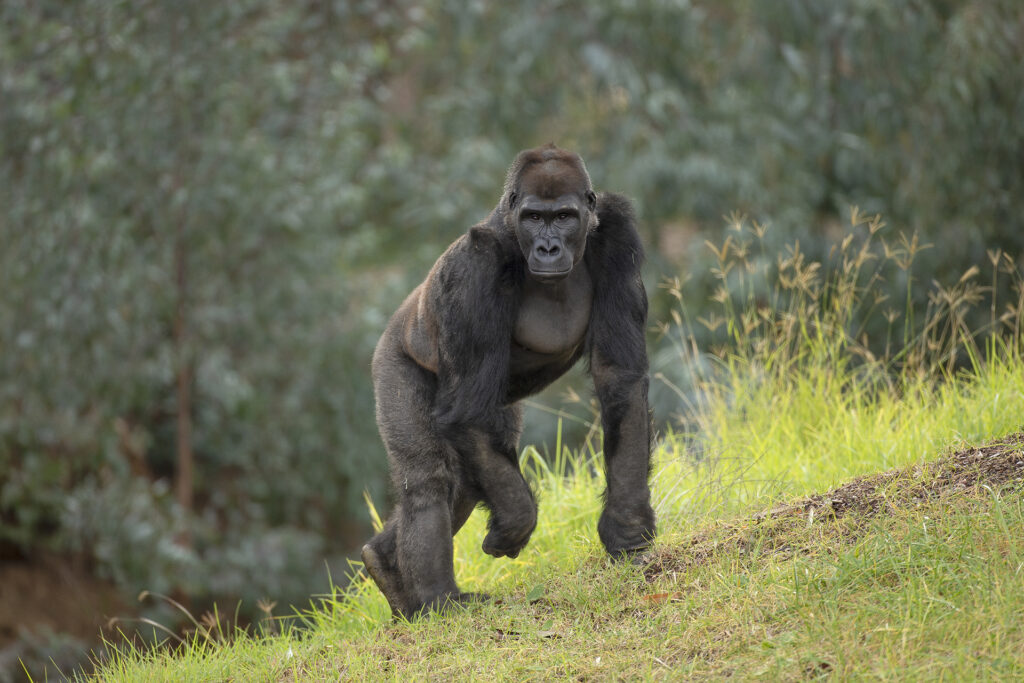
Baby Steps
With full support from leadership, wildlife care specialists Kelly, Bre, Todd, and Meredith began offering practice opportunities to Frank and Monroe one tiny step at a time.
Typically, the transport carrier that Frank and Monroe would ride in stays inside the gorilla house, so the first baby step was simply moving it outside where Frank and Monroe could see it in a new location. Then, they practiced walking into the carrier. Once Frank and Monroe were comfortable with that, a scissor lift was moved to the driveway. After a few more weeks, Frank and Monroe began to experience going into their carriers and up with the electric lift a little at a time. Then they started to transition off the lift to the back of the truck in their carriers. And finally, Frank and Monroe rode on the truck—as little as two feet at a time. First, they simply traveled two feet forward, then back. Then four feet with the next practice session, and so on. Each of these small progressions could take as long as two to three weeks to practice.
With every step, Frank and Monroe were in control. Some days they both chose to participate. Some days they didn’t. And that was okay. To offer added confidence that participating in each experience was a step in the right direction, Frank and Monroe were offered specially made treats like fruit smoothies and banana and cinnamon biscuits. They also gobbled up fresh strawberries, raspberries, and blueberries. Frank, in particular, seemed to gain confidence with the presence of his favorite burlap sack, known lovingly as “Frankie’s blankie.”
In all, these long-term practice sessions took about six months. “We really wanted the boys to build resiliency and have a great experience,” said Kelly Cassavant, Lead Wildlife Care Specialist on the Primate/Carnivore Team. “This became one of the most important things we were doing,” she said. The whole process of preparing special foods, offering the transport carrier to Frank and Monroe, moving the carrier into the driveway, getting it onto the lift, and the surrounding logistics involved took four team members roughly two hours, and these steps were repeated about every two days.
Despite the immense time investment, the team was on board from day one. “We thought, how can we help them thrive? Let’s make this an incredible experience for them.” And it paid off. “It was a fun process and it really helped them know it was not a big deal. Their comfort level was so high.”
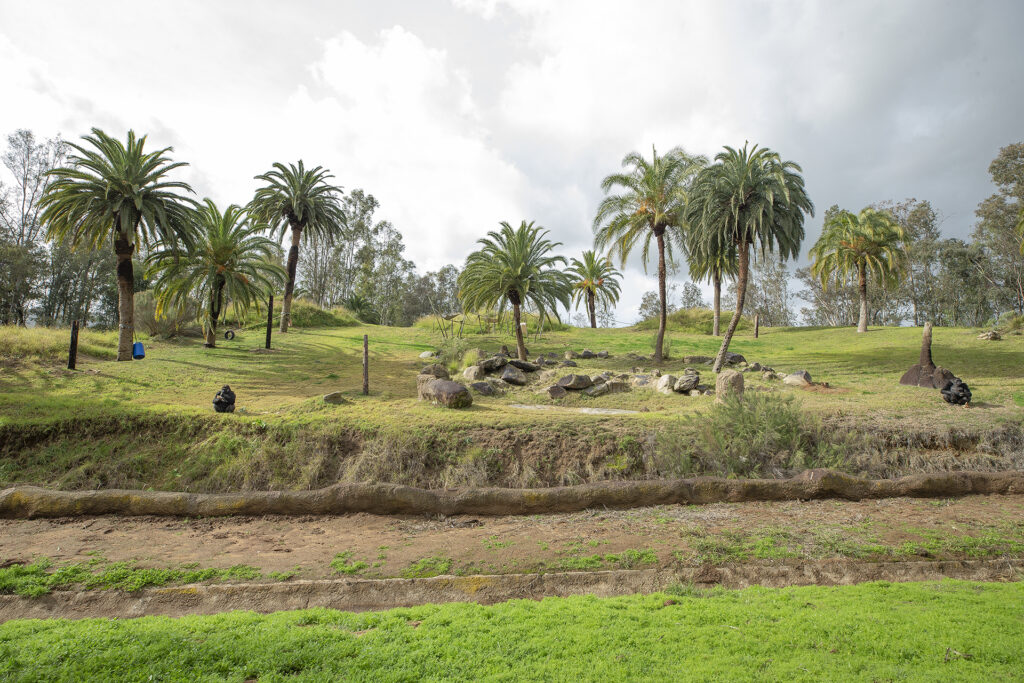
The Bachelor Pad
Once Frank and Monroe demonstrated confidence and readiness with each step of the journey, wildlife care specialists repeated each baby step as they had in practice, this time leading to the culmination of their journey to the “bachelor pad.” The six-minute trip went seamlessly, thanks to so many months of patience. “We definitely built resiliency,” says Kelly. “It’s just all about trust. They know we’re here for them.”
Frank and Monroe are now thriving in their hillside habitat, a large, grassy area with palm trees and room to play. Reflecting on the long journey, and how Frank and Monroe are now experiencing life as a bachelor troop, the gorilla team is so grateful for the many months and long hours they gave to help support Frank and Monroe. “The number one thing was—because of how intelligent and sensitive they are, this was going to be the best opportunity for them. It was all about them, and this was going to be the best situation for them.” So that's exactly what the team did. Because at the end of the day, we make time for what matters most.
Guests can visit Frank and Monroe’s “bachelor pad,” and other exclusive areas, as part of select safari experiences.


